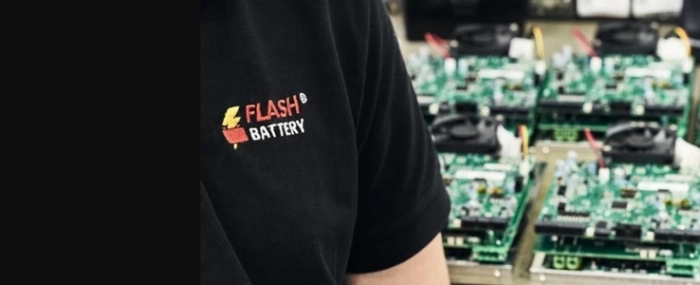
Flash Battery invests €6 million in new automated production line
This integrated management approach makes it possible to offer solutions that are fully tailored to each customer’s application needs, ensuring consistent quality and performance, even in complex, dynamic sectors.
Italian lithium battery maker Flash Battery has announced the launch of its new automated module assembly line with laser welding, propelled by an investment of over 6 million euros.
The new line is at the heart of the recent expansion of its production headquarters, which saw the addition of 2,200 square meters dedicated to an automated area for assembling battery modules, the company said.
With the integration of the new module assembly line the Reggio Emilia-headquartered company has completed the process of consolidating its production process in house, bringing the welding and assembly activities that were previously outsourced under direct control. Except for the cells, which are purchased from leading global manufacturers, every stage is now managed and supervised directly by Flash Battery, according to a media release.
This integrated management approach makes it possible to offer solutions that are fully tailored to each customer’s application needs, ensuring consistent quality and performance, even in complex, dynamic sectors, the media release said.
“Bringing battery module assembly in-house means going directly to the source of the supply chain,” said Marco Righi, CEO and Founder of Flash Battery. “As for the cells, we source them from leading global players, selecting multiple suppliers for each type to increase the reliability of our supply chain and strengthen our bargaining power. Recent geopolitical and economic shifts have confirmed just how crucial it is to control production directly, cutting lead times and reducing supply bottlenecks.”
The new assembly line is designed for rapid changes between configurations, handling 13 module variants with changeover times of under ten minutes.
“With this new line, we’re taking a decisive step towards a more autonomous, effective and reliable production model,” said Marco Righi. “Integrating production capabilities enables us to respond promptly to customer needs and deliver tailormade solutions at the highest levels of quality and performance. It’s a crucial competitive edge, especially in a constantly evolving market.”


